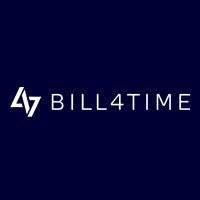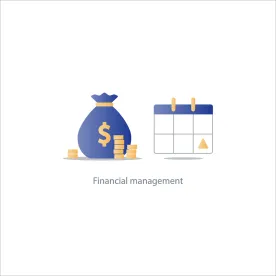Efficiently managing recurring expenses is essential for the financial success of any law firm. From rent and utilities to software subscriptions and salaries, these expenses can significantly impact the firm’s bottom line.
In this blog, we will explore strategies to identify, evaluate, and reduce recurring expenses, leverage technology for streamlined management, establish budgets and controls, and ensure compliance.
By implementing these tips and strategies, you can optimize your firm’s financial practices and focus on growth and success in the competitive legal industry.
What Types of Expenses Do Law Firms Have?
Typical law firm expenses can vary by the size of the firm and the practice areas, but they generally include:
-
Office space, rent, and utilities
-
Staff salaries and benefits
-
Office supplies and technology expenses
-
Third-party professional services, such as accountants or marketing agencies
-
Business travel and expenses
-
Professional memberships
-
Insurance
-
Continuing education
Recurring vs. Non-Recurring Expenses
Law firm expenses, like other business expenses, can be recurring and non-recurring. Recurring expenses are the repeating costs that arise from routine business practices, often on a predictable schedule. Recurring expenses include office supplies, a mortgage or lease on office space, staff compensation, marketing expenses, office maintenance, subscriptions for legal technology, and utility bills.
Non-recurring expenses are costs that aren’t part of the schedule or everyday business activities. They may be one-off or exceptional costs, such as investment in computers and other technology devices, real estate purchases, severance pay, or repair costs following an accident or natural disaster.
Common Challenges Law Firms Have with Tracking Recurring Expenses
There are many challenges that law firms may face when tracking recurring expenses, including:
Manual Methods
Many law firms still rely on manual methods to track expenses like spreadsheets or paper ledgers. This is not only time-consuming, but it creates opportunities for errors that can have financial repercussions.
Subscriptions
Law firms usually have subscriptions for professional services, legal publications, research databases, professional organizations, and legal software. When all of these subscriptions are on different cycles with different due dates, it can complicate expense management.
Client Expenses
Law firms may incur costs on behalf of clients called hard costs. These costs typically include travel expenses or court filing fees. Tracking these expenses can be challenging to differentiate because some hard costs are absorbed by the firm or billed to the client.
Varying Payment Methods
All the recurring costs for a law firm may have different payment methods, including ACH transfers, checks, credit cards, and other electronic payment platforms. Keeping track of all of these payment methods can be difficult alongside other expenses.
Importance of a Defined Law Firm Budget
Your firm’s budget assists in managing your cash flow by allowing you to predict your income and expenses, which helps you identify any surpluses or shortfalls in your cash flow. This allows you to plan accordingly and take advantage of investment opportunities.
Moreover, a defined law firm budget serves as a framework to assess your financial status and the impact of significant changes, investments, or expansions. By comparing your actual financial state to your budget, you can make more informed business decisions.
Tips to Track and Manage Legal Recurring Expenses
Ready to take control of your legal recurring expenses? Here’s how:
Use Legal Technology
Expense tracking software makes it easy for firms to track expenses in real time, store invoices and receipts, and generate expense reports. Solutions, like Bill4Time, can streamline your expense tracking to reduce errors, save time, and provide a comprehensive view of your firm’s financial standing.
Implement a Centralized System
Legal technology provides a centralized system for a single source of truth for your expense tracking. Even though your bills will be to different providers with different cycles and due dates, you can manage it all in one place.
Categorize Your Expenses
With both recurring and non-recurring expenses, you need to stay organized to stay on top of your obligations and evaluate your spending patterns. Categorizing expenses ensure nothing falls through the cracks and is allocated properly.
Use Reports
With comprehensive reporting, you can analyze your firm’s financial performance and identify trends to achieve success. You can view expenses on their own or include them in your full financial picture to make informed business decisions.
Embrace Law Firm Billing Software
Managing recurring expenses can be challenging when different payment allocations come into play. With tools like law firm billing software, your firm can manage expenses, stay on top of your cash flow, and prepare for the ebbs and flows of your business.



 />i
/>i

